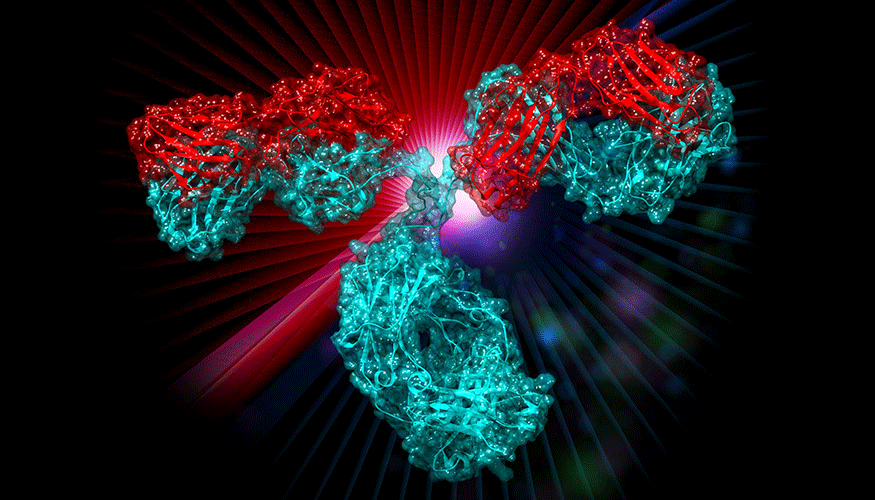Lawrence Livermore National Laboratory (LLNL) scientists, working in collaboration with other leading institutions, have successfully used an AI-driven platform to preemptively optimize an antibody to neutralize a broad diversity of SARS-CoV-2 variants.
In a newly published peer-reviewed paper in Science Advances, the team details a next-generation antibody derived from AZD3152, a medicine from global biopharmaceutical company AstraZeneca currently approved in Europe and Japan for COVID-19 pre-exposure prophylaxis.
By integrating cutting-edge computational modeling, deep mutational scanning and laboratory validation, scientists have engineered an antibody that restores full potency against multiple potential escape variants, including one that emerged over the course of this work, with the goal of fortifying antibodies against potential future mutations.
As the COVID-19 pandemic has demonstrated, SARS-CoV-2 evolves rapidly, rendering many previously effective antibody treatments obsolete. Most clinical antibodies that neutralized early strains lost efficacy against recent Omicron subvariants. AZD3152, developed as a prophylactic treatment for immunocompromised patient populations, also showed susceptibility to viral escape mutations.
To counter this, LLNL and AstraZeneca researchers embarked on a mission to enhance the antibody’s effectiveness preemptively. Their approach began with deep mutational scanning, a technique that simulates thousands of possible viral mutations to identify potential weak points in an antibody’s binding ability. The researchers discovered that specific mutations at certain positions in the virus’s spike protein significantly reduced AZD3152’s neutralizing power.
Addressing these vulnerabilities, researchers employed the Generative Unconstrained Intelligent Drug Engineering (GUIDE) computational platform, developed as part of the GUIDE program. The program is executed by the Joint Program Executive Office for Chemical, Biological, Radiological and Nuclear Defense’s Joint Project Lead for Chemical, Biological, Radiological, and Nuclear Defense Enabling Biotechnologies, on behalf of the Department of Defense’s Chemical and Biological Defense Program. It is aimed at improving biodefense preparedness and cost-effectively discovering medical countermeasure candidates for emerging and unanticipated biothreats.
Researchers used the platform to analyze over 10 billion potential antibody modifications and predict which alterations would enhance binding to SARS-CoV-2 variants, including those not yet in circulation. The top candidates were then tested in the lab to confirm their efficacy.
After two iterative design cycles, the team identified 3152-1142 as the most promising optimized antibody. This new antibody variant demonstrated a 100-fold improvement in potency against a SARS-CoV-2 variant that had previously escaped AZD3152’s neutralization.
The team envisions to someday have the capability to quickly redesign antibodies for fast approval by the U.S. Food and Drug Administration, similar to how influenza vaccines are approved with an expedited review cycle — the rationale being that researchers are making only a few amino acid changes to a previously rigorously reviewed drug product.
Read more: Lawrence Livermore National Laboratory
Preemptive optimization of a clinical antibody for broad neutralization of SARS-CoV-2 variants and robustness against viral escape. Science Advances, 28 March 2025.


